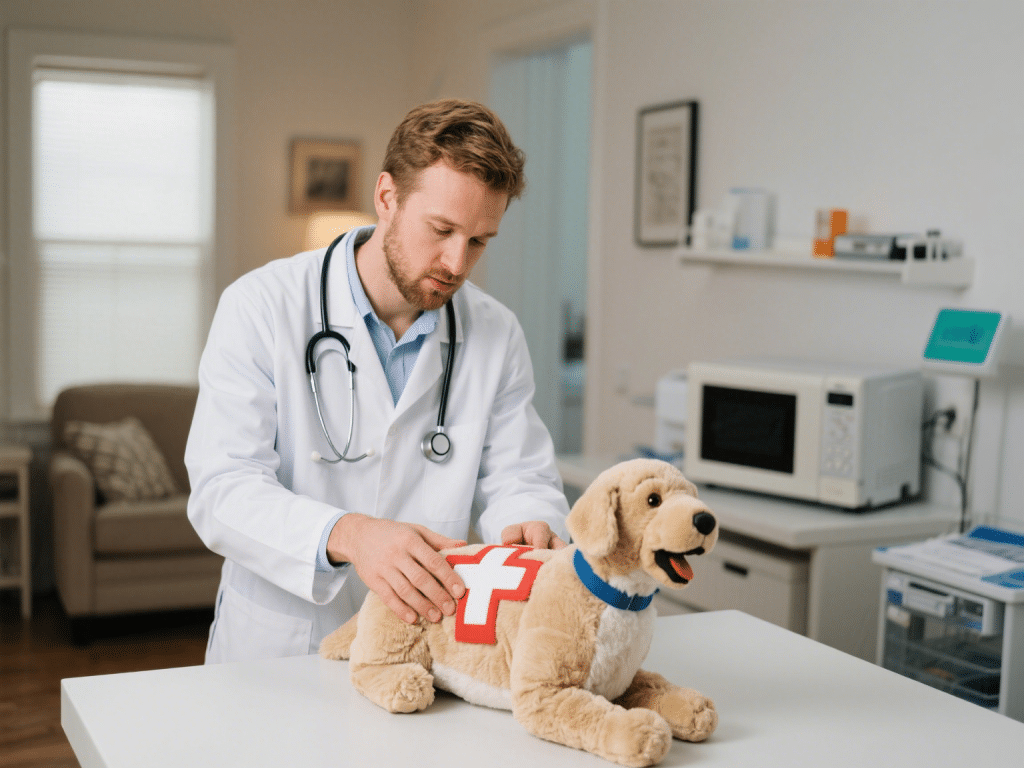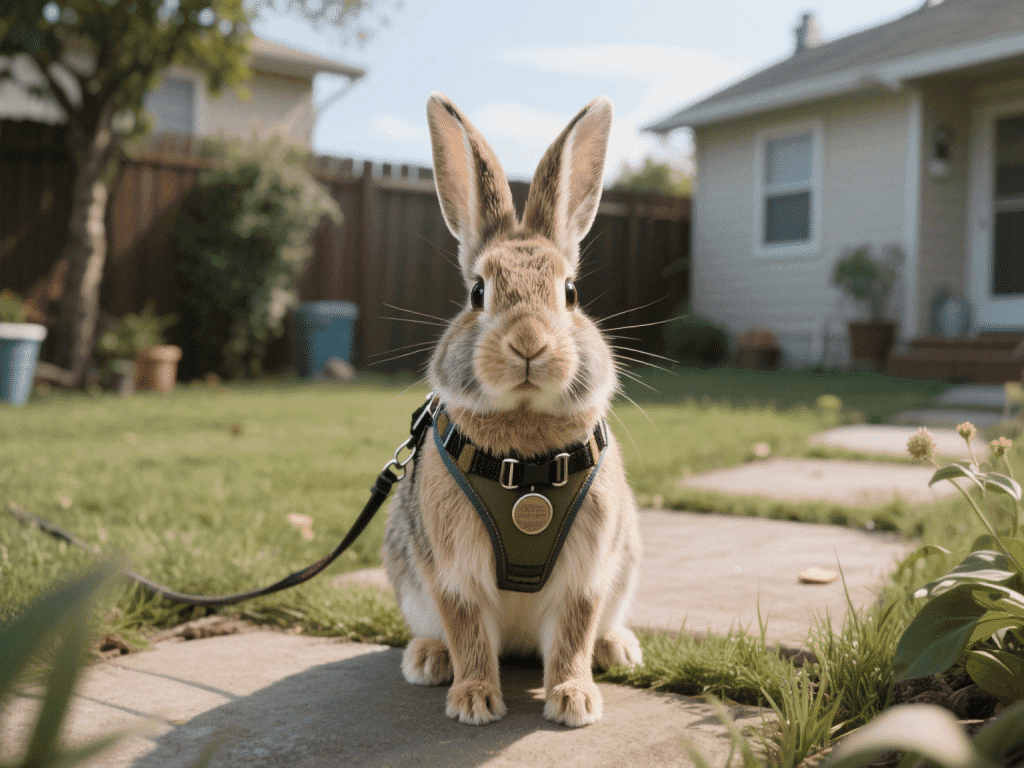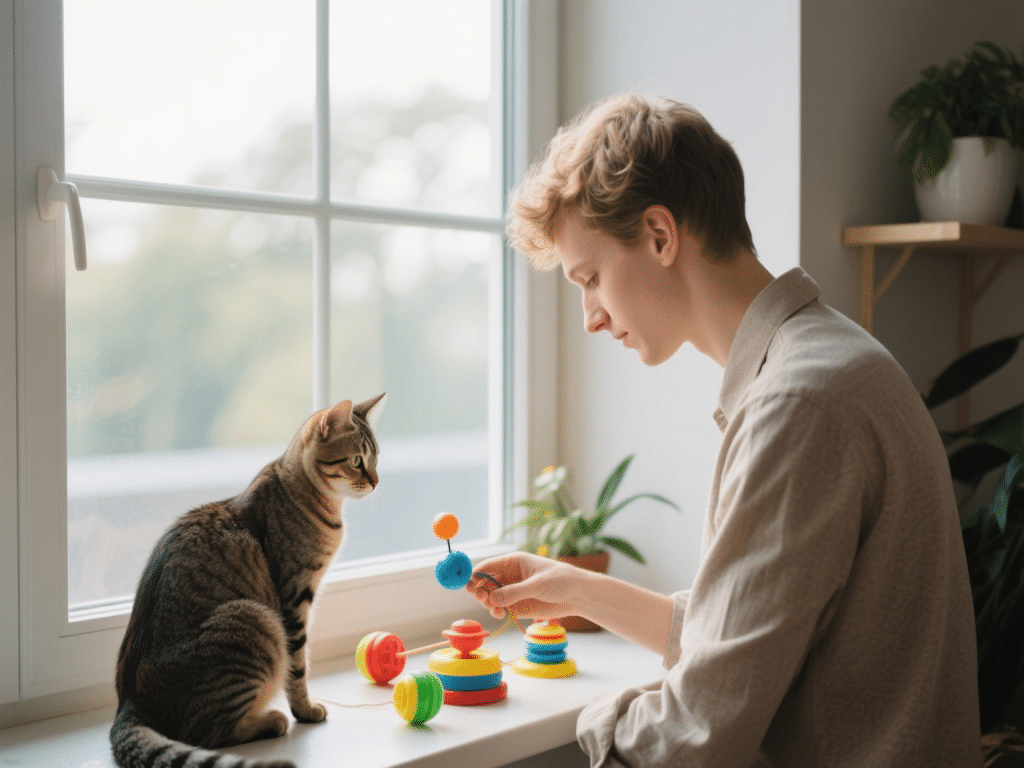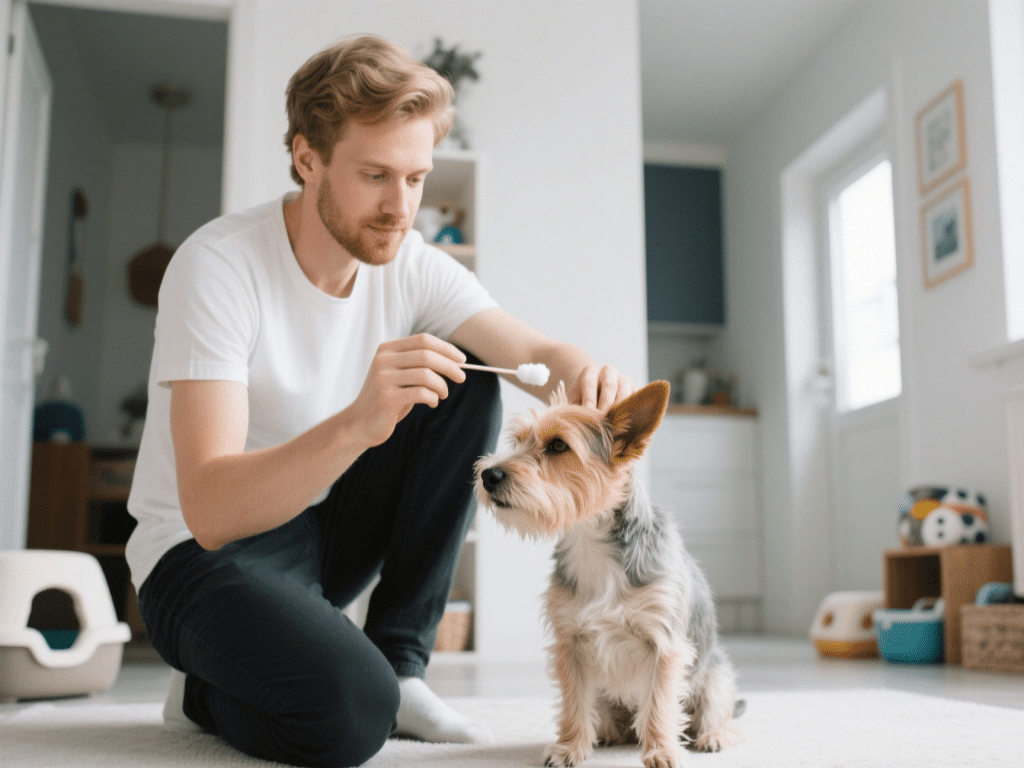Essential First Aid Tips for Minor Pet Emergencies

Even the most vigilant pet owners face bumps, scrapes, and sudden illnesses. Having a basic first aid skillset can mean the difference between a quick recovery and a trip to the ER. I’m Dr. Michael Chen, a small animal emergency specialist. This article empowers you with straightforward, at-home first aid steps for common minor pet emergencies until professional help is available.
1. Preparing Your Pet First Aid Kit
Must-have items:
Gauze rolls and pads
Non-stick bandages (vet wrap)
Adhesive tape (paper tape)
Antiseptic wipes and solution (chlorhexidine)
Tweezers, small scissors
Digital thermometer
Styptic powder (for nail bleeding)
Hydrogen peroxide (to induce vomiting under vet direction)
2. Handling Minor Wounds & Bleeding
Clean the Area: Trim hair, flush with saline.
Apply Pressure: Use gauze to stem bleeding (3–5 minutes).
Cover & Secure: Non-stick pad + vet wrap; avoid cutting circulation.
3. Managing Burns & Hot Spots
Cool Immediately: Run cool (not cold) water over area for 5 minutes.
Prevent Licking: Use an Elizabethan collar to protect burn.
Topical Care: Apply vet-approved burn ointment.
4. Treating Insect Bites & Stings
Remove Stinger: Gently with tweezers.
Cold Compress: 10 minutes to reduce swelling.
Antihistamines: Under veterinary dosage guidance.
5. Dealing with Vomiting & Diarrhea
Withhold Food: 12 hours for dogs, 6 hours for cats; water ad lib.
Bland Diet: Offer boiled chicken and rice in small amounts.
Hydration: Electrolyte solutions if vomiting persists.
6. Recognizing When to Seek Vet Care
Red-flag signs: lethargy, continuous bleeding, severe pain, respiratory distress, seizures, or inability to stand.
7. CPR & Choking Management
Choking: Perform gentle Heimlich maneuvers adapted for size.
CPR Basics: 30 chest compressions at one-third chest width, two rescue breaths, repeat cycles.
Conclusion
Arming yourself with basic first aid skills is a cornerstone of responsible pet ownership. Keep your kit stocked, stay calm, and remember: these measures bridge you to professional care, giving your pet the best chance for swift recovery.






Comments on "Essential First Aid Tips for Minor Pet Emergencies" :